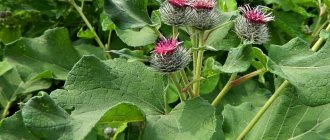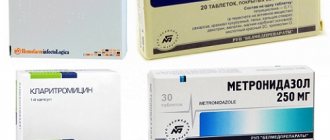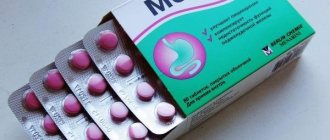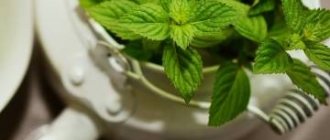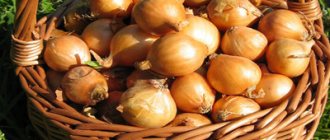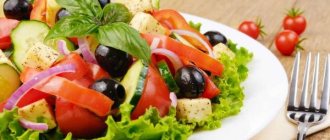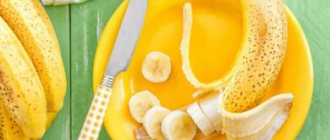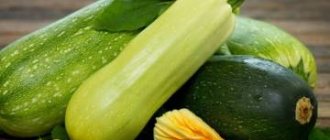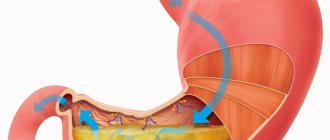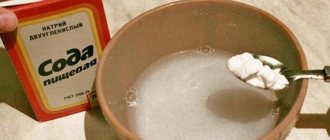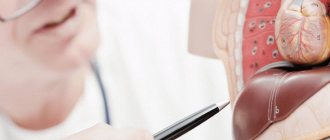Allochol is a combined herbal preparation that is used in the treatment of diseases of the liver, gall bladder, and biliary tract. Allohol is also prescribed for pancreatitis, which eliminates bile stagnation, improves digestion, and reduces the load on the pancreas.
Allochol is an affordable drug for the treatment of pathologies of the hepatobiliary system
pharmachologic effect
Bile, which is part of the medicine, has a pronounced effect:
- cholekinetic - improves the outflow of bile, thereby preventing its stagnation;
- choleretic - stimulates uniform secretion of bile.
Normalizing the processes of bile secretion will help restore liver function, the contractility of the bile, as well as the secretion of bile into the intestines.
The active ingredients of the drug ensure the absorption of water and electrolytes from the blood into bile, thereby normalizing its rheological properties. As a result, the movement of bile through the intrahepatic ducts and bile ducts accelerates. This prevents the development of the inflammatory process, and, if present, relieves unpleasant symptoms. Also, liquefaction of bile prevents the deposition of cholesterol crystals and the subsequent formation of stones.
Black coal and plant extracts included in Allochol enhance the effect of the main component - bile
Normalizing bile production increases the secretion of the stomach, pancreas, and other gastrointestinal organs. Additionally, the garlic extract included in the product stimulates digestion. Nettle, in addition to its choleretic effect, relieves inflammatory processes well. Activated carbon adsorbs toxins.
Improving digestion helps eliminate bloating, constipation, and nausea. Regular production of bile helps relieve pain.
Anesthesia
Omeprazole, rabeprazole, lansoprazole and drugs based on them that reduce the secretion of gastric glands. H2 histamine receptor blockers (Famotidine, Ranitidine) are considered obsolete, second-line drugs. The effect of these drugs is due to the effect on the mucosal cells so that hydrochloric acid is practically not released into the lumen of the stomach. Therefore, the use of such drugs for gastritis with high acidity reduces the acidity of the stomach for a long time, while irritation of the mucous membrane also decreases.
Antacids
The diagnosis of gastritis, which is established after FGDS, is not just a diagnosis, not a specific disease, but a collective general concept that includes a whole complex of various pathological processes in the human stomach. There is a certain classification of gastritis:
Price – 80 rubles. The drug is developed on the basis of neostigmine methyl sulfate. The substance increases the synthesis of pepsin and hydrochloric acid, improves the functioning of the smooth muscles of the gastrointestinal tract. To combat gastritis, the medicine is taken three times a day in a dosage of 10-15 mg. The duration of therapy is determined by the doctor.
- for pain in the upper abdomen that radiates to the hypochondrium, sternum or other part of the abdomen, depending on the location of the ulcer;
- with “hunger pain” that occurs in the stomach on an empty stomach;
- tendency to constipation;
- for heartburn.
Contraindications
You can relieve inflammation at home with infusions of medicinal herbs. You can drink stomach infusions containing plantain, mint, chamomile, St. John's wort, and shamrock. Treatment with herbal infusions should continue for a month.
This disease is considered common among people who lead an unhealthy lifestyle and poor diet. Hereditary predisposition will increase the risk of gastritis if the protective function of the stomach is reduced.
To ensure effective treatment of gastritis with high acidity, it is important to correctly establish the diagnosis by determining the form, type and stage of the disease. The doctor examines not only the medical history, but also the general condition of the patient, the presence of concomitant pathologies, in order to clarify what contraindications there are for the use of certain medications.
Herbs for gastritis
Combined drug treatment of gastritis with high acidity also includes symptomatic therapy, depending on the severity of the clinical picture. Stomach disease rarely occurs in isolation; usually pathology is observed in neighboring organs of the digestive system: liver, gallbladder, pancreas.
"Allohol" normalizes the secretion of bile when restoring the functions of the gallbladder and liver. This leads to a decrease in the severity and frequency of inflammation. Improved bile secretion helps enhance the activity of secretory functions in the stomach. Food begins to be better absorbed, and the intensity of rotting and fermentation in the intestines decreases.
Possible diarrhea, manifestations of hypersensitivity to the ingredients of the drug (allergy), manifested by hyperemia (redness) of the skin, skin irritation, itching, urticarial rashes (urticaria), allergic rhinitis (runny nose), shortness of breath. More serious allergic reactions cannot be ruled out: Quincke's edema (rapid swelling of the face or part of it, lips, eyes, larynx, tongue with breathing problems), anaphylactic shock (severe itching that quickly spreads across the skin, a sharp drop in blood pressure, loose stools, vomiting, swelling larynx, difficult and noisy breathing, pale/blue skin, sharp narrowing of the larynx, bronchi, leading to acute difficulty breathing, impaired consciousness, disruption of vital organs).
Indications
Indications for use are:
- chronic form of hepatitis;
- cirrhosis in the initial stages;
- atonic constipation;
- cholangitis;
- cholecystitis;
- mild cholelithiasis;
- postcholecystectomy syndrome;
- biliary dyskinesia.
Allochol helps to normalize digestion, get rid of pain in the hypochondrium on the right in various diseases of the hepatobiliary system
Pain, a feeling of heaviness in the hypochondrium, nausea, an unpleasant taste in the mouth and other symptoms of damage to the liver and gallbladder disappear only 7-10 days after starting administration.
For heartburn
When using Allochol for heartburn, you need to take into account that it occurs under the influence of various factors: from poor nutrition to serious pathologies of the digestive tract (cholecystitis, pancreatitis, hyperacid gastritis, duodenitis, peptic ulcer, etc.). To eliminate an unpleasant burning sensation in the chest, you must immediately find out the cause, neutralize the provoking factor, and adhere to a certain diet.
Allochol is effective for heartburn if it is caused by cholecystitis or other abnormalities of the hepatobiliary system, leading to problems with digestion of food, impaired gastrointestinal motility, and congestion. It is prescribed in conjunction with other medications aimed at treating and controlling the underlying disease. The drug activates the secretion and outflow of bile, increases the motor activity of the gastrointestinal tract, accelerates digestion, and neutralizes fermentation processes.
For gastroduodenal reflux
Gastroduodenal reflux is a condition in which bile from the duodenum enters the stomach (not to be confused with reflux esophagitis, which is accompanied by the reflux of stomach contents into the esophagus). For bile in the stomach, Allochol is prescribed to enhance the motility of the gallbladder, normalize bile flow processes and improve the rheological properties of physiological fluid.
Note! One of the reasons for the development of gastroduodenal reflux is overeating, especially before bed.
For stomach pathologies
The choleretic composition is included in the complex therapy of gastritis with low acidity - it increases the enzymatic activity of the gastrointestinal tract, helps eliminate flatulence, heaviness in the stomach and other symptoms of the disease. Read about the manifestations and treatment of flatulence in pancreatitis here.
For gastritis with high acidity, Allochol cannot be used, since the active components stimulate the secretion of hydrochloric acid by the stomach. For the same reason, the drug is not prescribed for reflux esophagitis.
Allochol tablets are coated with a film membrane that prevents its breakdown by stomach enzymes
For pancreatic diseases
In the official instructions for the use of Allochol there is no mention of its use for pancreatic diseases. This medicine contains condensed bile, activated charcoal, dried garlic and nettle leaves. The listed substances not only stimulate the production of bile, but also enhance the contractile and secretory function of the gastrointestinal tract. In case of exacerbation of chronic pancreatitis, the body does not need increased production of enzymes, so taking the drug is inappropriate and can be harmful.
Acute pancreatitis is an absolute contraindication for the use of Allochol, which is prescribed in the instructions. The herbal remedy has not been subjected to clinical trials, so the positive effects claimed by the manufacturers have not been proven. The properties of condensed bile indicate that it activates pancreatic enzymes, an excess of which in acute pancreatitis will lead to even greater damage to the organ.
In case of intoxication
The most common cause of intoxication is the consumption of low-quality foods or alcohol in large quantities. If nausea, vomiting and diarrhea occur, first of all you need to rinse your stomach, then take a sorbent to bind and remove residual toxins from the body.
It makes no sense to treat acute poisoning with Allochol, since the activated carbon in the tablets is not enough for such cases. At the same time, the drug should be taken during the rehabilitation stage after poisoning to normalize the functioning of the liver and food processing processes.
Nutrition for gastritis
To ensure the effectiveness of drug treatment, you must adhere to a strict diet. There are several nutrition options for gastritis. They are selected depending on the type of acidity, the characteristics of the course of the disease and taking into account concomitant diseases. With high acidity, nutrition should be gentle:
- chemically - you should exclude foods and dishes that irritate the mucous membrane and stimulate the secretory activity of the stomach;
- thermally - food should not be either hot or too cold;
- mechanically - the diet should be devoid of rough foods that overload the gastrointestinal tract.
Preference is given to pureed, viscous, unleavened dishes. Products are boiled or steamed; fried foods are prohibited. You need to eat at least 5 times a day, eating at approximately the same time. You should have dinner a few hours before going to bed. Portions should be small, because overeating is unacceptable.
Allowed dishes include:
- stale wheat bread, white crackers;
- vegetables (except prohibited ones): pureed fresh, boiled in the form of puree;
- vegetable puree soups without frying using rice, semolina, oatmeal or noodles;
- chicken, turkey, rabbit or beef without fat and tendons in the form of cutlets, meatballs, soufflé, pate;
- weak bone broth or jelly;
- low-fat boiled, steamed, jellied fish;
- slimy or boiled porridges: buckwheat, rice, semolina, oatmeal;
- vermicelli, homemade noodles, small pasta;
- boiled eggs soft-boiled or in the form of a steam omelet (no more than 3 pieces per week);
- non-acidic varieties of berries and fruits, fresh and baked, jelly, jellies, mousses, preserves made from them;
- dairy products (if well tolerated): milk, milk jelly, low-fat and non-acidic types of cottage cheese and sour cream, cottage cheese casseroles;
- honey, raisins, low-fat cookies;
- compotes, including dried fruits, weak tea with milk, rosehip decoction.
In case of chronic gastritis at the stage of remission, it is allowed to eat soft meat and fish, prepared in small pieces. The use of vegetable oils and butter is limited.
Prohibited use:
- fatty, sour, spicy, hot, smoked, fried foods;
- preservatives, flavor enhancers, fast food;
- heavy cream, salted cheeses, fermented milk products;
- lard, margarine, spread;
- rye and bran bread;
- sauces, marinades, pickles;
- pea, pearl barley, barley porridge;
- mushrooms;
- fresh onions, garlic;
- cabbage (red and white), spinach, radish, turnip, rutabaga, radish, sorrel;
- coffee, alcohol, carbonated drinks, grape juice;
- baked goods and confectionery products;
- chocolate, ice cream, candies.
A strict diet is followed for 1-2 weeks until the acute phase passes. After this, the diet can be slightly expanded.
Contraindications
Allochol is contraindicated for use in:
- allergies or individual intolerance to components;
- acute and subacute liver dystrophy;
- acute hepatitis;
- obstructive jaundice, developing due to blockage of gallstones;
- cholelithiasis (if the size of the stones exceeds 10 mm);
- calculous cholecystitis;
- acute form of pancreatitis;
- acute enterocolitis;
- peptic ulcer of the stomach and duodenum.
For patients with diabetes mellitus, Allochol is prescribed with caution.
Method of administration
For chronic forms of liver and gastrointestinal diseases, Allochol should be taken 1-2 tablets 3-4 times a day for 3-4 weeks. In case of exacerbation of chronic processes, the duration of the course can be increased to 2 months, while reducing the daily dose to 3 tablets. A repeated course is allowed to begin no earlier than 3 months after the end of treatment.
Children's single doses are calculated taking into account the age of the child:
- under 7 years - ½ tablet;
- over 7 years old - one tablet.
The recommended frequency of administration for children is up to 3 times a day.
Attention! Allohol should always be taken after meals.
How to take it for the benefit of the stomach?
Before treatment with Allohol for gastritis, a doctor’s consultation is necessary. He prescribes the necessary examinations and decides whether it is advisable to take the medication. General rules of administration and dosage:
- The drug, although natural, is a medicine.
"Allohol" should be consumed exclusively after meals, 1-2 tablets three times a day. The duration of the treatment course is 3-4 weeks. You can eat any food, even in small quantities. It must be consumed before taking the pill. If the gastrointestinal tract does not contain nutrients, the mucous membrane is damaged when hydrochloric acid is released, which can cause a stomach ulcer.
For acute forms of disease - 1 tablet 2-3 r. per day every day. The course of treatment is 1-2 months. For a child under 7 years of age, the dose is reduced by 2 times. The therapeutic course can be carried out 2-3 times, taking a break for 3 months. In combination with the medication, it is recommended to take vitamin complexes, because “Allohol” helps to increase the absorption of substances.
Side effects
As a rule, the drug is well tolerated. However, the possibility of side effects cannot be completely excluded.
It is extremely rare for patients during treatment to experience:
- heartburn;
- nausea;
- increased flatulence;
- diarrhea;
- skin itching, allergic reactions.
Skin itching is one of the undesirable reactions of taking Allochol
We recommend that you read: Karsil's compatibility with alcohol.
What else is important to know?
- The drug is better absorbed when taken concomitantly with fat-soluble vitamins (A, D, E, K).
- The combination of Allochol with antibiotics and antiseptics helps to quickly eliminate the symptoms of infectious inflammation of the biliary tract and increases the effectiveness of antimicrobial therapy.
- When Allochol is taken simultaneously with other choleretic drugs, the cholekinetic and choleretic effects are enhanced.
- In combination with mild laxatives, Allochol can be used in the treatment of atonic constipation, which often causes another unpleasant problem - hemorrhoids.
- Allochol can be taken by pregnant and lactating women. If adverse reactions occur, you should stop using the medication and consult your doctor.
- Alcohol stimulates peristalsis and the secretion of enzymes, which is why simultaneous consumption of alcohol with Allochol tablets causes diarrhea (diarrhea).
Read more about the interaction of Allochol with other drugs in the article...
Allohol
Allochol is a choleretic drug made on a natural basis.
Release form and composition
The product is available in the form of film-coated tablets for adults and children. One tablet of the drug contains:
Allohol for children contains the same substances, only 2 times less.
Tablets of the drug are available in blisters of 10 pieces or in dark glass jars of 50 pieces. One cardboard pack contains 1, 2 and 5 blisters or 1 jar of tablets.
Analogs
There are no complete structural analogues of Allochol. However, on the pharmaceutical market there is a range of herbal and synthetic drugs that have a choleretic effect.
These are the medicines:
- Karsil;
- Gepabene;
- Ursofalk;
- Ursosan;
- Ursodez;
- Febichol;
- Holosas;
- Hofitol.
Hofitol for various diseases
Chophytol is a choleretic drug of plant origin, has choleretic and cholekinetic properties. Direct indications for prescription are pathologies of the liver and gall bladder (hepatitis, cirrhosis of the liver, cholecystitis, impaired motility of the biliary tract). However, in some cases the drug is used in the complex treatment of other gastrointestinal diseases. It is prescribed for gastritis, gastroduodenitis, duodenogastric reflux.
The medicine helps improve the patient's condition with reflux gastritis. This is a disease that occurs due to the systematic reflux of bile into the stomach. The gastric mucosa is not protected from the aggressive influence of bile acids and pancreatic enzymes, which causes irritation and inflammation. Among the causes of duodenogastric reflux are diseases of the liver (hepatosis) and gall bladder, and impaired patency of the bile ducts. Hofitol normalizes the motility of the gallbladder and ducts, prevents reflux and helps accelerate the healing of the gastric mucosa. It reduces pain and a feeling of fullness in the abdomen, helps get rid of bitter-tasting belching and heartburn.
Other drugs for the treatment of gastritis
Other groups of drugs that cure gastritis are known.
To accelerate the healing of wounds and gastric ulcers, the drug methyluracil is widely used. It has an anti-inflammatory effect and promotes tissue regeneration processes. Actovegin has a similar effect. Wobenzym accelerates the healing process and increases the overall resistance of the body. The course of Wobenzym is repeated during periods of exacerbation.
To speed up the removal of excess acid and toxins from the stomach, sorbents are prescribed - enterosgel, smecta, lactofiltrum. You can take cheap activated carbon.
To eliminate the symptoms of nausea and vomiting, normalize the movement of the food bolus and prevent the development of reflux, tablets are used to treat gastritis - cerucal and motilium for gastritis. The drugs help prevent the backflow of food and bile from the duodenum into the stomach, and eliminate the unpleasant symptoms of nausea and vomiting.
Herbal medicine has found wide application in the treatment of gastritis. Plant decoctions - oregano, St. John's wort, chamomile, nettle - allow you to heal ulcers and cure inflammation.
It is necessary to brew the herbs with boiling water and drink before meals. Unlike pharmaceutical drugs, herbs are safer, according to patients, and are inexpensive.
It is possible to include acidophilus in the diet during the subacute period of the disease. Alternative medicine (including Ayurveda) offers a number of effective recipes.
Dietary supplements have become popular recently. Most of them contain the required amount of vitamins and microelements.
Remember, the supplement is not a medicine; treatment with dietary supplements will not replace medications for gastritis, especially during the active period. You should use dietary supplements for gastritis if your doctor has given consent to use, so as not to cause more harm to the body.
When purchasing dietary supplements, you need to clarify whether they are certified and allowed for sale in the country.
Duodenitis is inflammation of the mucous layer of the duodenum. The disease, in addition to acute and chronic forms, has many variants of the clinical course. Treatment of duodenitis is carried out taking into account the causes and condition of neighboring organs.
Definition of cholecystitis
Inflammation of the gallbladder can occur as an acute or chronic, calculous or acalculous process. Non-calculous chronic cholecystitis is a local inflammation of the bladder walls, accompanied by dysfunction of the biliary tract and disturbances in the properties of bile. Most gastroenterologists consider acalculous chronic cholecystitis to be the main stage in the development of cholelithiasis in patients.
